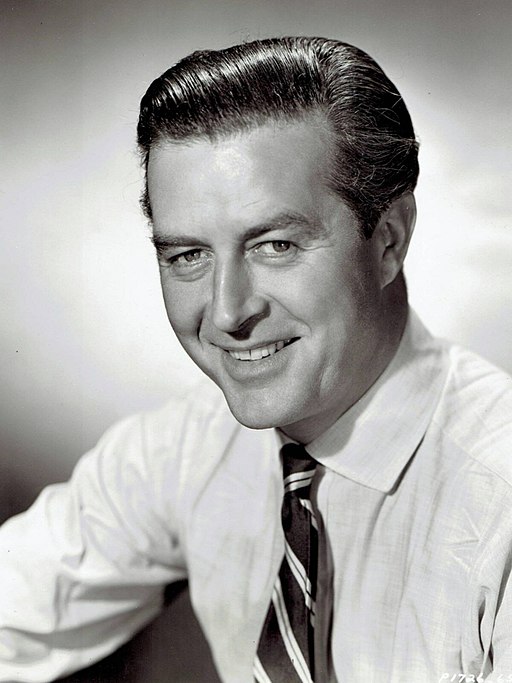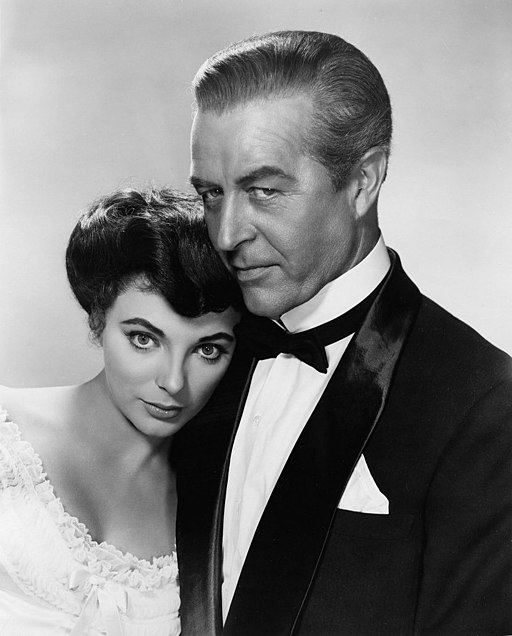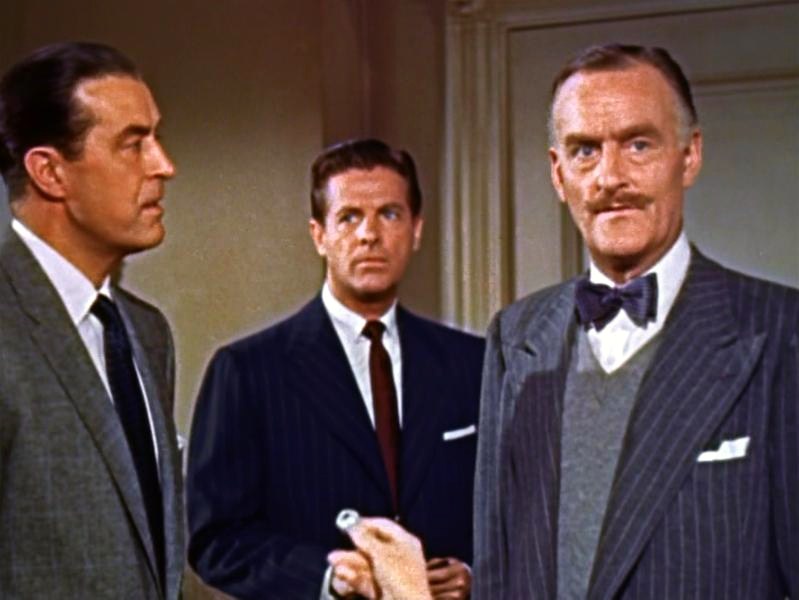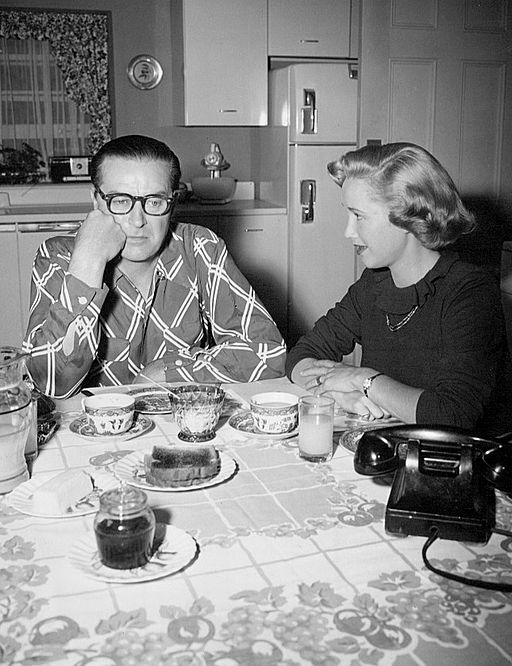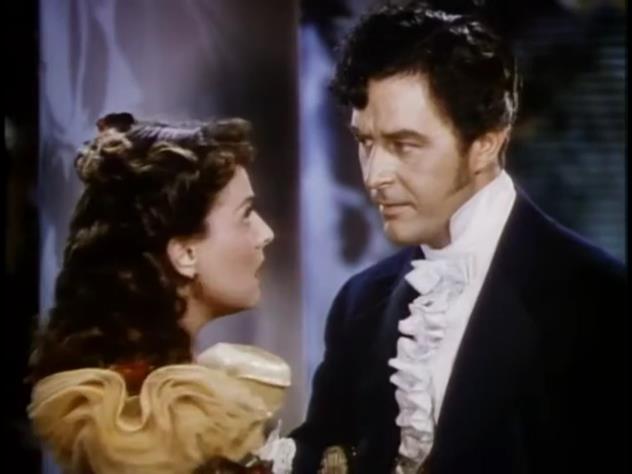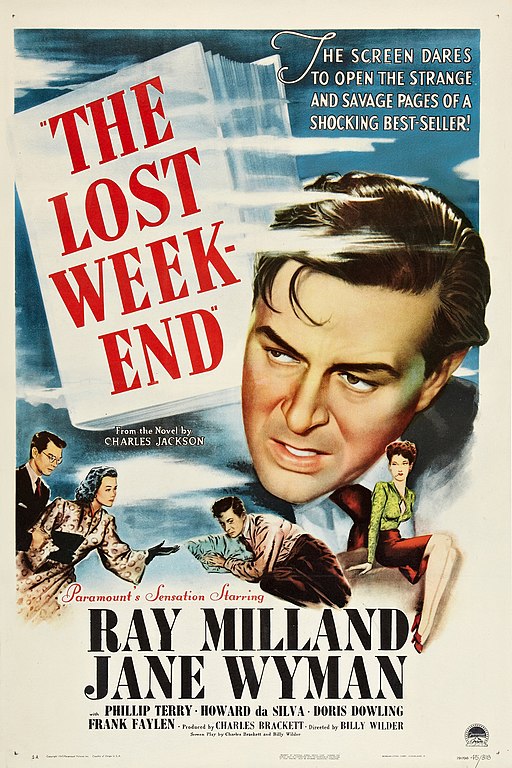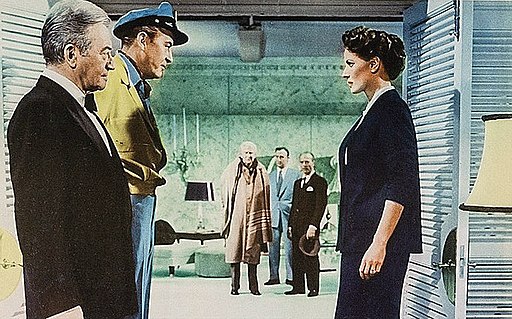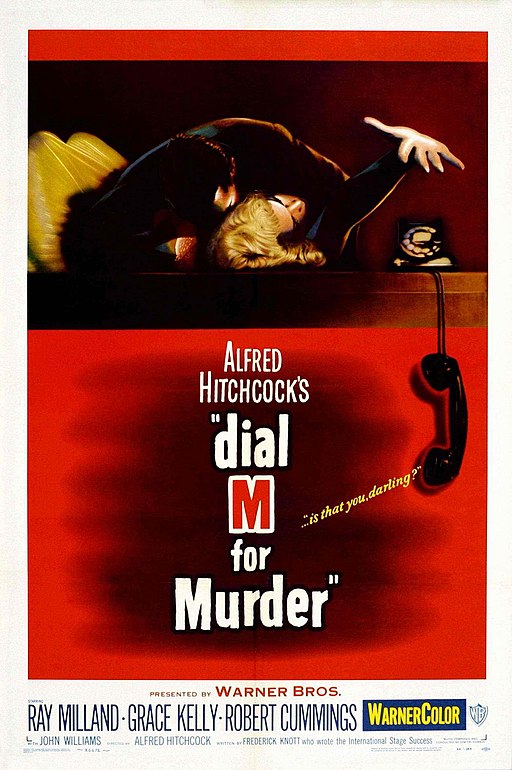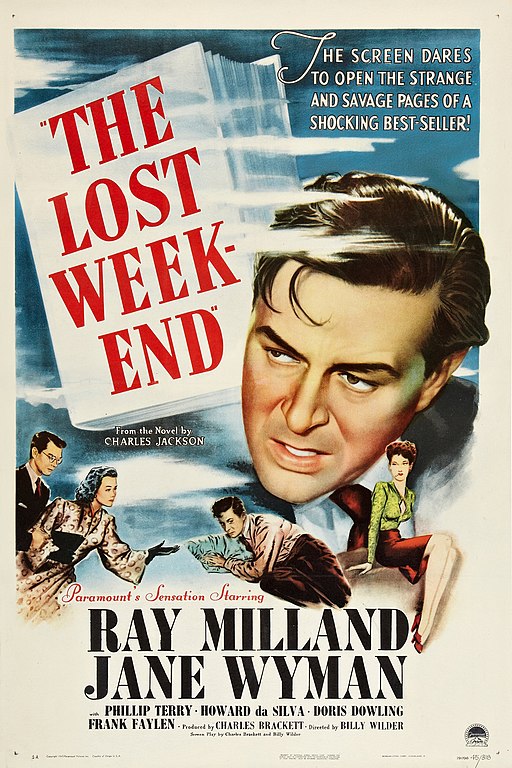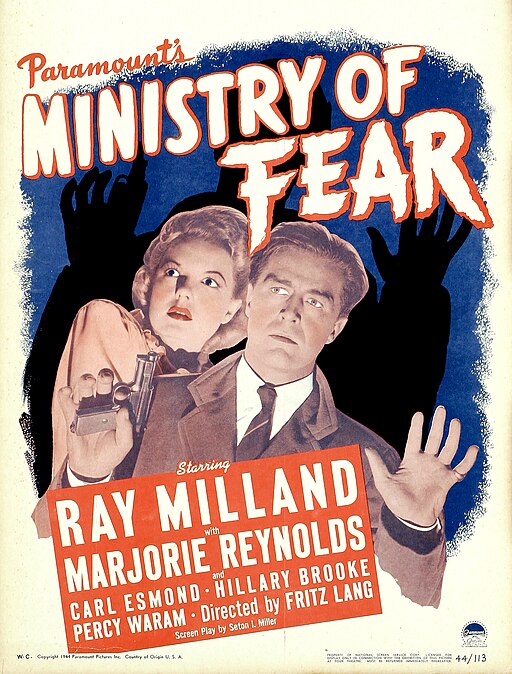Ray Milland
back| Full Name | Reginald Alfred John Truscott-Jones |
| Stage Name | Ray Milland |
| Born | January 3, 1907 |
| Birthplace | Neath, Glamorgan, Wales, United Kingdom |
| Died | March 10, 1986 |
| Buried | Cremated, ashes scattered at sea |
| Married to | Muriel Weber (1932–1986, his death) |
| Children | Daniel Milland, Victoria Milland |
| Notable films | The Lost Weekend (1945) - Dial M for Murder (1954) - The Big Clock (1948) - Love Story (1970) |
Ray Milland – “The Man with a Thousand Faces”
Ray Milland was a distinguished Welsh actor and director, whose Hollywood career spanned over seven decades. Born Reginald Alfred John Truscott-Jones on January 3, 1907, in Neath, Wales, he became one of cinema's most versatile talents.
After a brief stint in the Household Cavalry, Milland turned to acting, debuting in British films before moving to Hollywood. He signed with MGM, and his leading-man looks and suave demeanor won him roles across genres, from drama to romance and horror.
Milland's most lauded performance came in Billy Wilder's "The Lost Weekend" (1945), where his portrayal of an alcoholic writer earned him the Academy Award for Best Actor. This role established him as a serious actor capable of delivering complex performances. Other notable films include the suspenseful "Dial M for Murder" (1954) and the sci-fi classic "The Thing with Two Heads" (1972).
Off-screen, Milland was known for his enduring marriage to Muriel Weber and his role as a father to two children. He was a respected figure in the industry, both for his acting and later for his work as a director. Milland passed away on March 10, 1986, leaving behind a legacy of cinematic excellence.
Ray Milland was often known as "The Man with a Thousand Faces" due to his versatility as an actor.
Related
Ray Milland – Biography, analysis and all his movies
Ray Milland was an acclaimed Welsh actor and director, whose career in Hollywood spanned seven decades. With his debonair looks and versatile acting style, he appeared in a wide range of films from drama to comedy and horror.
Milland is best remembered for his Academy Award-winning portrayal of Don Birnam in Billy Wilder's "The Lost Weekend" (1945), a groundbreaking and harrowing look at alcoholism. His performance is celebrated for its depth and realism.
He also starred in Alfred Hitchcock's "Dial M for Murder" (1954), where he played the suave but sinister Tony Wendice, plotting the perfect crime. Other notable films include the film noir "The Big Clock" (1948), where he played a man frantically trying to solve a murder he is being framed for, and "Love Story" (1970), where he took on the role of Oliver Barrett III, the wealthy father of the male lead.
Milland was known for his professionalism and his ability to convey complex emotions with subtlety and sophistication. After his peak as a leading man, he transitioned into character roles and directing, showcasing his wide-ranging talents in the entertainment industry.
Private life:
Ray Milland led a relatively private life, especially compared to many of his Hollywood contemporaries. He was married to Muriel Frances Weber from 1932 until his death in 1986. Their marriage was considered stable and enduring by Hollywood standards, especially during an era when the film industry was known for short-lived marriages and public romantic scandals.
Milland and Muriel had two children: a son, Daniel, and a daughter, Victoria. Milland was known to be a family man, and his marriage to Muriel was one of the longest in Hollywood history at the time. Unlike many stars, Milland managed to keep his family out of the limelight, and little was reported about his home life. This discretion was a testament to his desire to separate his professional life from his personal one.
In terms of his public persona, Milland was known for his charm and wit, which were often displayed in his film roles. However, he was also known for being somewhat reserved and private off the screen. This approach helped him maintain a degree of normalcy despite his fame.
Milland's son, Daniel, unfortunately, predeceased him, dying in 1981. The loss deeply affected Milland, who was known to have a close relationship with his family. Despite the glamour associated with his career, Ray Milland's life at home was marked by a sense of traditional stability rarely seen in the bustling Hollywood scene.
Ray Milland passed away on March 10, 1986, due to lung cancer. He was 79 years old at the time of his death. The actor, who had a career spanning over seven decades, had been a smoker for many years, which likely contributed to the development of the disease.
Analysis of Ray Milland’s acting style:
Ray Milland's acting style was characterized by a refined and measured approach that brought an air of sophistication to his characters. Here’s an analysis of the key attributes that defined his performances:
Understated Performance
Milland was known for his understated acting style. He favored subtlety over grandiosity, often conveying the inner turmoil of his characters through nuanced facial expressions and a controlled use of voice. This subtlety made his performances deeply human and relatable.
Versatility
His versatility was evident across a range of genres. Whether it was in the tense drama of "The Lost Weekend," the suspenseful intrigue of "Dial M for Murder," or the sci-fi horror of "The Thing with Two Heads," Milland demonstrated an ability to adapt his style to the demands of the role.
Charm and Wit
In his early career especially, Milland's charm and light comedic touch made him a favorite in romantic comedies and light-hearted dramas. He had a natural ease and wit that made him endearing to audiences.
Dramatic Intensity
Milland's portrayal of Don Birnam in "The Lost Weekend" showcased his capacity for dramatic intensity. He effectively portrayed the desperation and despair of alcoholism, earning him an Academy Award for Best Actor. This role marked a departure from his earlier, more suave characters and demonstrated his serious dramatic capabilities.
Voice and Diction
His voice was another tool he used to great effect. Milland's clear diction and resonant tone lent his characters a certain gravitas, making him well-suited for roles that required a commanding presence.
Emotional Authenticity
Even when portraying more villainous or flawed characters, Milland brought a level of emotional authenticity that made them multi-dimensional rather than caricatures. His characters often elicited sympathy because he portrayed their vulnerabilities alongside their faults.
Physicality
Although not as renowned for physical roles, Milland’s physicality was always suited to the character. Whether it was the staggering gait of a man on a bender or the composed poise of a calculating murderer, he used his body language effectively to communicate character.
Directorial Influence
As a director himself, Milland understood the importance of serving the story above all. This understanding likely influenced his acting, as he consistently delivered performances that were tuned to the film’s broader narrative needs.
Ray Milland’s acting style exemplified the classic Hollywood lead, marked by elegance and an everyman appeal. He brought complexity to his roles without ever overstepping into melodrama, a quality that made him one of the most reliable and skilled actors of his generation.
Notable movies featuring Ray Milland:
1930s:
- "The Flying Scotsman" (1929): An early role where Milland plays a man who tries to stop a train crash.
- "The Man Who Played God" (1932): Milland appears in a supporting role in this drama about a pianist who becomes a lip-reader after losing his hearing.
- "The Jungle Princess" (1936): A jungle adventure film where Milland's character discovers a wild jungle woman played by Dorothy Lamour.
1940s:
- "Reap the Wild Wind" (1942): A sea adventure set in the 1840s, with Milland as a sea captain.
- "The Major and the Minor" (1942): A comedy directed by Billy Wilder, where Milland's character falls for a woman pretending to be a child.
- "The Uninvited" (1944): A supernatural mystery with Milland as a man who discovers his new home is haunted.
- "The Lost Weekend" (1945): Milland's Oscar-winning role as a writer struggling with alcoholism.
- "The Big Clock" (1948): A film noir where Milland plays a man trying to solve a murder he is being framed for.
1950s:
- "Dial M for Murder" (1954): An Alfred Hitchcock thriller with Milland as a husband plotting his wife's murder.
- "The Girl in the Red Velvet Swing" (1955): Milland portrays architect Stanford White in this drama based on a true scandal.
- "The River's Edge" (1957): A film noir with Milland as a scheming criminal on the run.
1960s:
- "Love Story" (1970): A romantic drama where Milland plays the wealthy father of the male lead, opposing his son's relationship with a working-class girl.
1970s:
- "Escape to Witch Mountain" (1975): A Disney film where Milland plays a millionaire trying to exploit orphan siblings with supernatural powers.
1980s:
- "The Sea Serpent" (1984): Milland's final film appearance, where he plays Professor Timothy Wallace in this monster movie.
Remarkable quotes from Ray Milland:
On acting challenges:
"The two most difficult characters I've ever played were the two I played in 'The Big Clock' and 'The Thief.' In each, I had to create a character with no dialogue whatsoever."
On film choices:
"I've made over 125 pictures, and I've never shot a guy in the back. Change the scene or I'll change the job."
On the craft of acting:
"It's very important to remember the primary rule of acting — never to let the public see the wheels turning."
On his career longevity:
"I kept working because I learned the first rule of Hollywood success — 'Always have a new deal brewing.”
Reflecting on life and career:
"It is said that a man's growth is seen in the successive choirs of his friends. For most of us, that might mean a dimming of the lights, a curtain falling. For me, it's the reverse. My friends have become more important."
On his approach to roles:
"I have been accused of being methodical, but nothing could be further from the truth. Approach every scene with a fresh outlook and don't let yourself be influenced by what you've done before."
On his iconic role:
"I tried to make him a human being. That was the essence of my portrayal, the humanity."
Awards and Nominations:
Academy Awards:
- Won Best Actor in a Leading Role for "The Lost Weekend" (1946)
Golden Globe Awards:
- Won Best Actor for "The Lost Weekend" (1946)
Cannes Film Festival:
- The film "The Lost Weekend," in which he starred, won the Grand Prix (the precursor to the Palme d'Or) in 1946.
Other Honors:
- Milland has a star on the Hollywood Walk of Fame for his contribution to Motion Pictures, located at 1623 Vine Street.
- He was also nominated for an Emmy for his work in television.
Analysis of Ray Milland’s performance in the movie “The Lost Weekend”:
In "The Lost Weekend," Ray Milland delivers a performance that is widely regarded as a career-defining moment and one of the greatest in cinema history. His portrayal of Don Birnam, a struggling writer and chronic alcoholic, showcased his immense talent and commitment to the craft of acting. Here's an analysis of his performance:
Depth of Characterization
Milland's portrayal goes beyond the stereotype of a drunkard to paint a comprehensive picture of a man battling addiction. He captures the physical and psychological pain of alcoholism with a realism that was unprecedented for its time.
Physicality
Milland's physical transformation throughout the film is striking. He conveys the debilitating effects of alcoholism through his body language—his gait, his posture, and the look in his eyes. His performance is one of embodied suffering; the audience can almost feel his hangovers, his desperation, his tremors.
Psychological Portrayal
Beyond the physical, Milland delves deep into the psychological turmoil of his character. He effectively communicates the internal struggle between the desire for a better life and the crushing weight of addiction. His portrayal of Birnam's hallucinations is particularly powerful, capturing the terror of delirium tremens with harrowing authenticity.
Subtlety and Complexity
Milland's performance is nuanced, avoiding melodrama even when portraying the extremes of addiction. He uses subtlety to express complex emotions, allowing the audience to see the multifaceted nature of his character's battle with alcohol.
Sympathy and Relatability
Despite his character's flaws, Milland evokes sympathy. Audiences root for Birnam, largely due to Milland's humanizing portrayal. He makes the character relatable, shedding light on addiction as an illness rather than a moral failing.
Evoking Empathy
Milland's performance is so effective that it evokes a palpable empathy from the audience. Viewers are drawn into Birnam's world, experiencing the highs and lows of his journey, thanks in large part to Milland's immersive performance.
Critical Acclaim
Milland's work in "The Lost Weekend" earned him the Academy Award for Best Actor. Critics and audiences alike praised his dedication to the role and his ability to bring depth to a character that could have easily been a one-dimensional cautionary tale.
Ray Milland's performance in "The Lost Weekend" remains a benchmark for actors portraying characters with addiction. His work in the film is a masterclass in acting, demonstrating the power of cinema to foster understanding and compassion for those suffering from alcoholism. Milland's legacy, thanks in large part to this role, is that of an actor who could bring profound humanity to complex characters.
Overview of all movies with Ray Milland:
1920s
- The Flying Scotsman (1929)
- The Plaything (1929)
- The Woman from China (1929)
- The Lady from the Sea (1929)
1930s
- The Informer (1930)
- Way for a Sailor (1930)
- Passion Flower (1930)
- Just a Gigolo (1931)
- Strangers May Kiss (1931)
- Son of India (1931)
- Bought! (1931)
- Ambassador Bill (1931)
- The Bachelor Father (1931)
- Night Angel (1931)
- The Man Who Played God (1932)
- Polly of the Circus (1932)
- This Is the Night (1932)
- Love Affair (1932)
- The Greek Had a Word for Them (1932)
- Payment Deferred (1932)
- Blonde Crazy (1932)
- Sky Bride (1932)
- The Woman Between (1932)
- Alias the Doctor (1932)
- Shopworn (1932)
- Service for Ladies (1932)
- Charlie Chan's Chance (1932)
- But the Flesh Is Weak (1932)
- Uptown New York (1932)
- Hotel Splendide (1932)
- Orders Is Orders (1933)
- Bolero (1934)
- We're Not Dressing (1934)
- Many Happy Returns (1934)
- The Gilded Lily (1935)
- One Hour Late (1935)
- Men Without Names (1935)
- Alias Mary Dow (1935)
- The Glass Key (1935)
- Four Hours to Kill! (1935)
- The Big Broadcast of 1936 (1935)
- The Return of Sophie Lang (1936)
- Three Smart Girls (1936)
- Next Time We Love (1936)
- Exclusive (1937)
- Bulldog Drummond Escapes (1937)
- The Emperor's Candlesticks (1937)
- Wings Over Honolulu (1937)
- Easy Living (1937)
- Ebb Tide (1937)
- Wise Girl (1937)
- Her Jungle Love (1938)
- Tropic Holiday (1938)
- Say It in French (1938)
- Men with Wings (1938)
- The Jungle Princess (1936)
- Hotel Imperial (1939)
- Beau Geste (1939)
- Everything Happens at Night (1939)
1940s
- French Without Tears (1940)
- Irene (1940)
- The Doctor Takes a Wife (1940)
- A Night to Remember (1943)
- The Crystal Ball (1943)
- Lady in the Dark (1944)
- The Uninvited (1944)
- Ministry of Fear (1944)
- Till We Meet Again (1944)
- Kitty (1945)
- The Well-Groomed Bride (1946)
- The Lost Weekend (1945)
- California (1947)
- The Imperfect Lady (1947)
- Golden Earrings (1947)
- The Trouble with Women (1947)
- So Evil My Love (1948)
- The Big Clock (1948)
- Miss Tatlock's Millions (1948)
- Sealed Verdict (1948)
- It Happens Every Spring (1949)
- Alias Nick Beal (1949)
- A Woman of Distinction (1950)
- Crisis (1950)
- Copper Canyon (1950)
1950s
- Circle of Danger (1951)
- Close to My Heart (1951)
- Night into Morning (1951)
- Rhubarb (1951)
- Bugles in the Afternoon (1952)
- The Thief (1952)
- Something to Live For (1952)
- The Girl in the Red Velvet Swing (1955)
- Dial M for Murder (1954)
- A Man Alone (1955)
- The Safecracker (1958)
- Lisbon (1956)
- Three Brave Men (1956)
- High Flight (1957)
- The River's Edge (1957)
- The Premature Burial (1962)
- Panic in Year Zero! (1962)
- X: The Man with the X-ray Eyes (1963)
1960s
- Love Story (1970)
- Escape to Witch Mountain (1975)
1970s
- Frogs (1972)
- The Thing with Two Heads (1972)
- Gold (1974)
- Aces High (1976)
- The Last Tycoon (1976)
- Oliver's Story (1978)
- The Attic (1980)
- The Sea Serpent (1984)

